School Ties Can Give Early-Career Workers a Leg Up
It’s not just what you know, it’s also who you went to school with

Around 25% of new hires in the US join companies with at least one school alumni connection. Alumni networks are especially common in healthcare, pharmaceuticals, and law.
Having a network appears most beneficial early in a career: Entry-level hires with alumni connections earn 6% more than similar hires without such connections.
Alumni networks also matter at large companies, where new hires with networks earn 4% more than similar entrants without such ties.
As students return to school this fall, the relationships they build may help pave the way for their future careers. In a job market where advances in AI and cyclical factors are making it more challenging than ever for entry-level workers to find opportunities, human connections from alumni networks may become a valuable resource for early-career professionals and beyond. These networks can connect new hires with experienced employees who share a common background, opening doors for guidance, mentorship, and career advancement. This week, we explore how alumni networks can support labor market entrants looking for jobs.
Our sample focuses on individuals in the US who started roles at new companies in 2024 and report at least one education experience on their online professional profile. We classify these new hires into those who do have and those who do not have an alumni network in their new position, where we define a “network” as having at least one existing employee in the same company and metropolitan area who attended the same school as the new hire. We find that around one-quarter of new hires in 2024 started positions at companies where they had such a network.

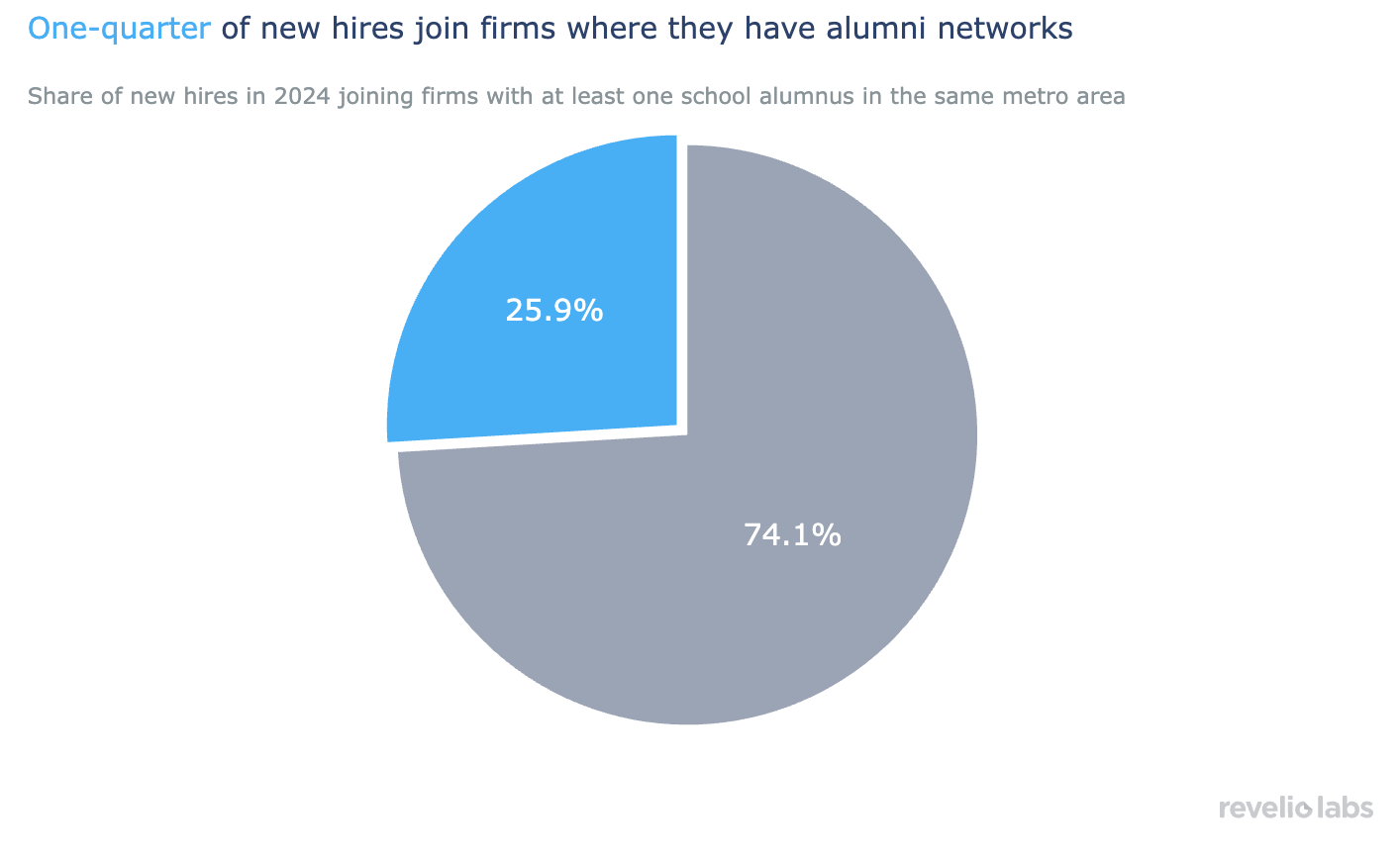
The prevalence of alumni networks within different sectors varies. We find that networks are more prevalent in sectors requiring a high degree of specialized knowledge, such as healthcare, law, and defense, where more than 30% of new hires join companies with at least one fellow alum already employed. One reason for the prevalence of networks in these sectors could be mechanical: Fewer schools can provide the technical training required. However, alumni networks could also provide trust and credibility, or serve as valuable signals, in sectors where reputation and expertise are critical. Law firms, for example, recruit heavily through alumni networks, and recommendations play an important role in the residency placement process in medicine. On the other hand, alumni networks are less common in industries that recruit from a variety of backgrounds, such as marketing, HR, or education.

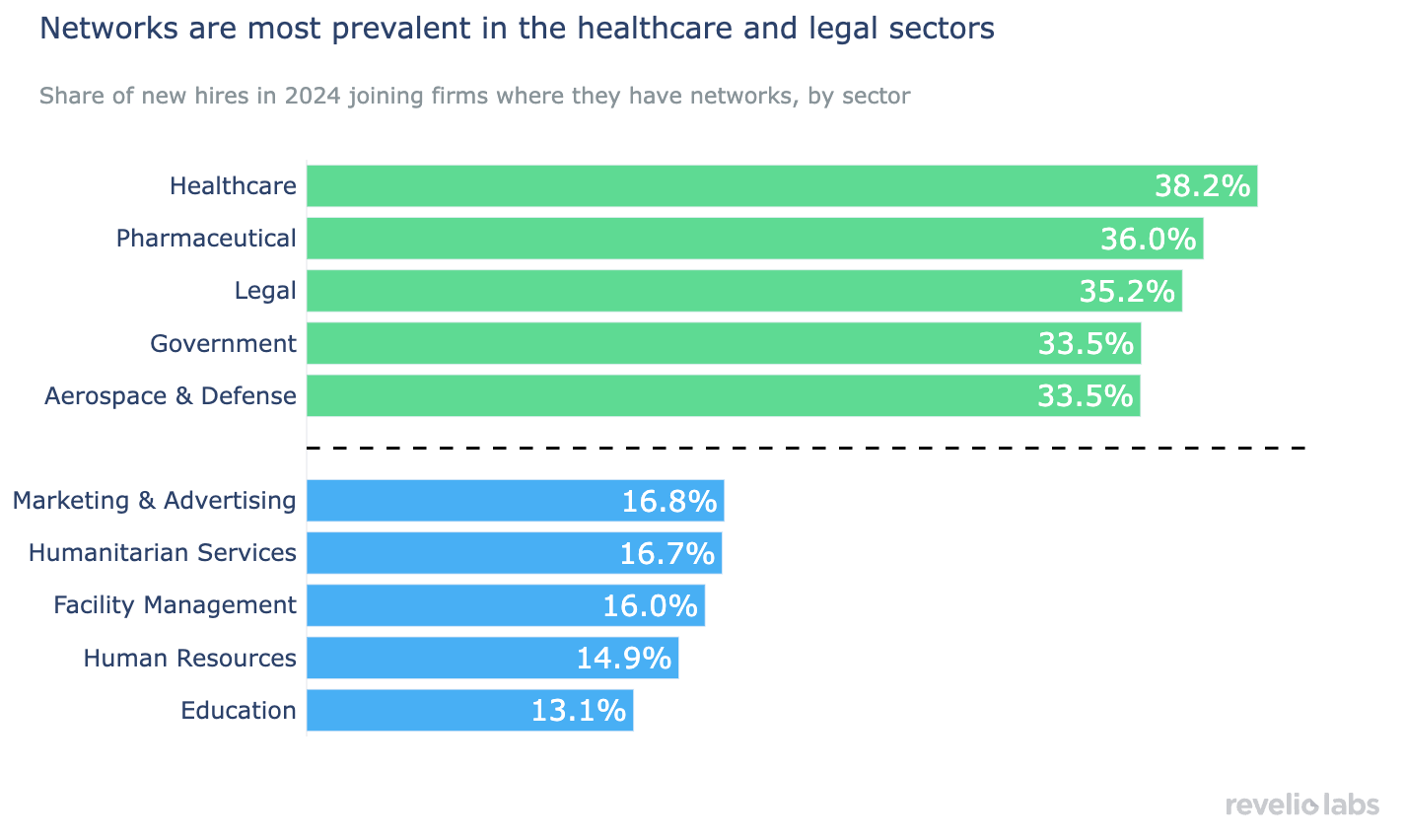
Is having an alumni network associated with better career outcomes, such as higher salaries, and does this vary by company? We compare the salaries of new hires in 2024 who have a network at their new company to those of similar hires in the same state, job category, and seniority level who do not. Looking at large companies with the highest salary differences between new hires with and without alumni, we find that pharmaceutical companies such as Pfizer and Johnson & Johnson, as well as hospitals such as Mount Sinai, comprise most of the top ten. This highlights the importance and value of school ties in sectors where alumni networks are especially prevalent as we observed earlier.

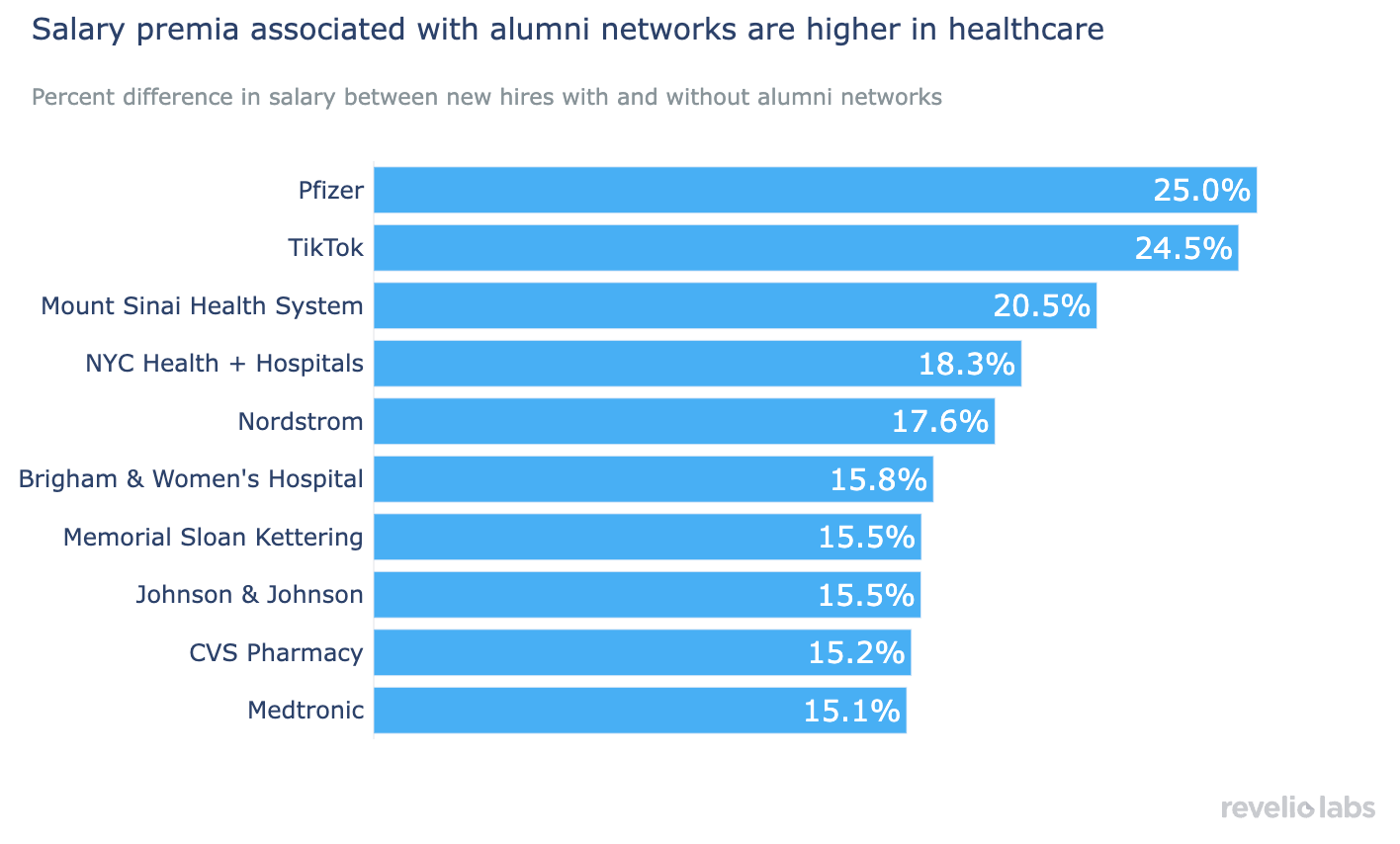
Looking more broadly, are employees at certain types of companies more likely to receive higher salaries from having an alumni network? We find that having a network is associated with higher salaries, particularly at large companies: New hires with school connections at firms with more than 1,000 employees earn 4% more than similar new hires at the same company without such connections. Alumni networks may be particularly important in large organizations as the size of the firm can make it difficult for employees to stand out, and having a school alumnus nearby may provide new hires with advice and insider knowledge. Compared with smaller firms, large firms may also offer greater opportunities for salary growth.

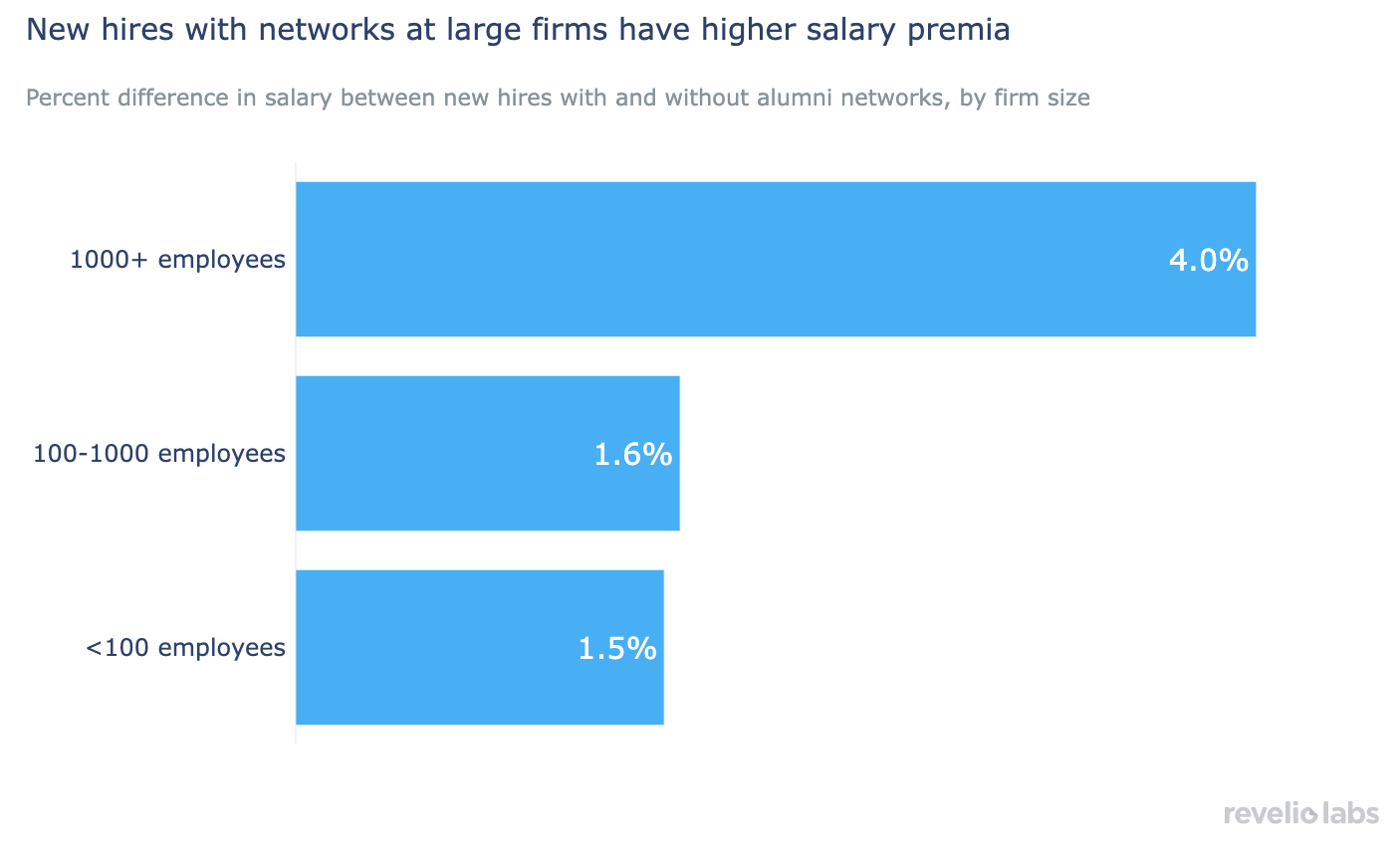
Alumni networks may also be associated with higher returns for different types of employees. We find that new hires in entry-level positions, for example, see a higher salary premium associated with having a network than hires at senior levels: Entry-level hires with networks make 6% higher salaries than similar entry-level hires without such connections. Networks may be particularly important for entry-level employees because school reputation or alumni referrals may serve as a valuable signal of ability in the absence of prior job experience.

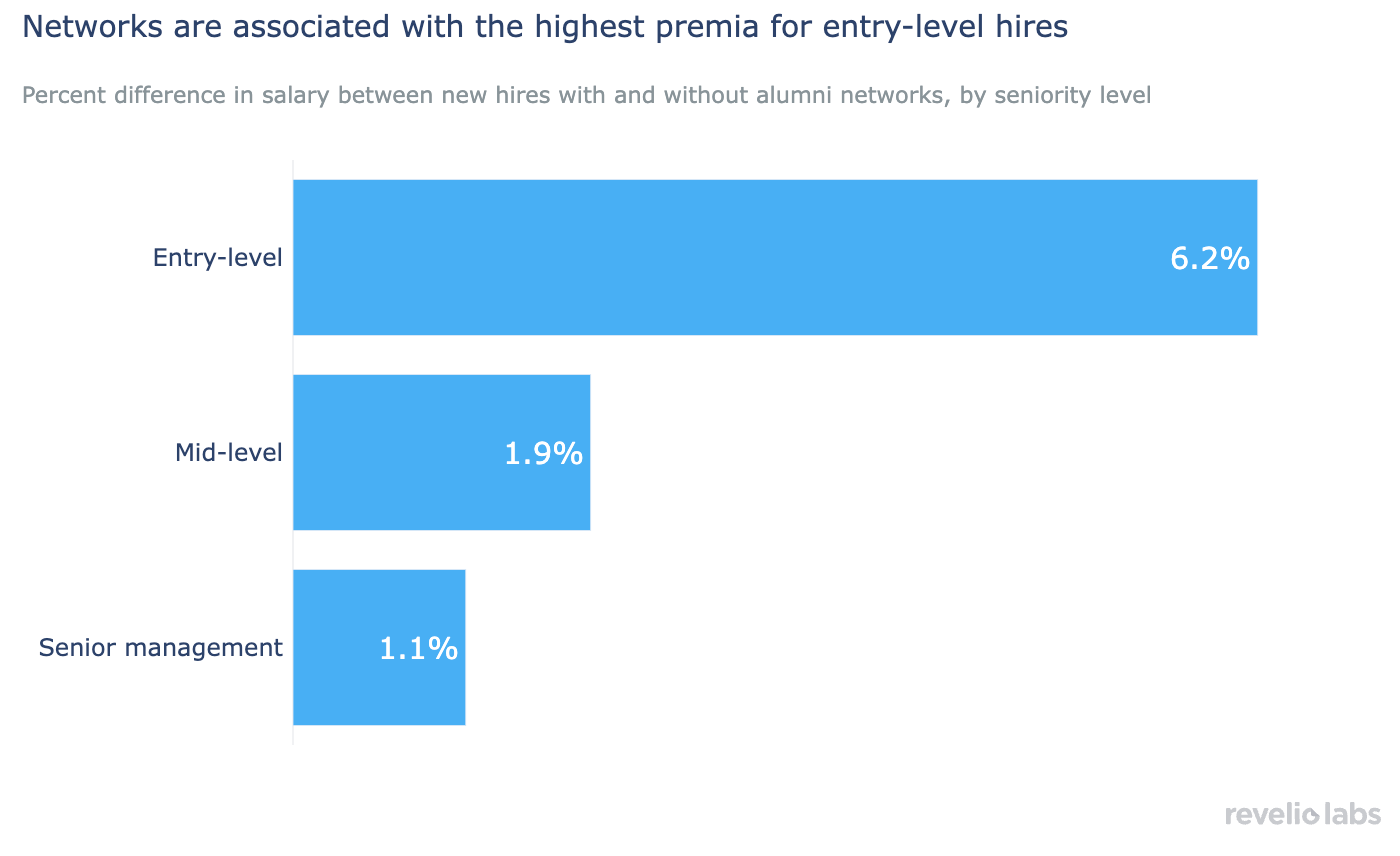
Alumni networks can significantly shape the early career outcomes of college graduates, making them an important factor for prospective students to consider when choosing a school. Which schools, then, have the most prevalent alumni networks? To control for state-specific differences in the likelihood of remaining in-state after graduation (which would mechanically yield higher network presence), we further restrict the sample to new hires who changed states for their new position. We present the ten schools with the most prevalent networks (among those with at least 500 out-of-state hires in 2024) below. Georgia Tech tops the list—42% of new out-of-state hires who attended the school joined a company where an existing employee was a fellow alum.

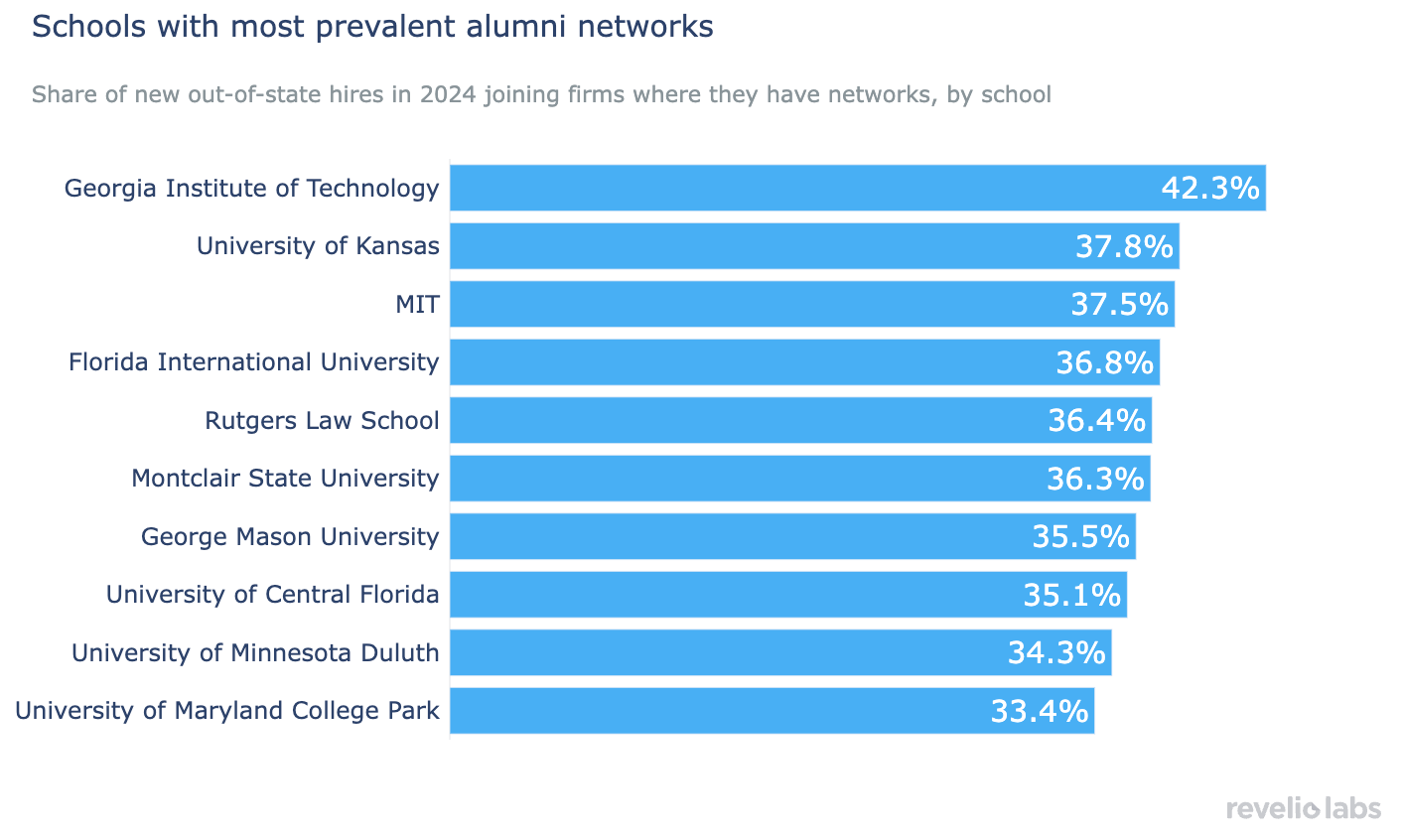
In conclusion, alumni networks play a meaningful role in shaping career outcomes, especially for new hires entering large firms or specialized industries. For early-career professionals in particular, alumni networks serve both as a source of support and as a signal of credibility in competitive job markets. As the labor market continues to evolve, the presence and strength of alumni networks will likely remain an important factor not only for employees navigating their careers but also for schools seeking to prepare graduates for long-term success.


